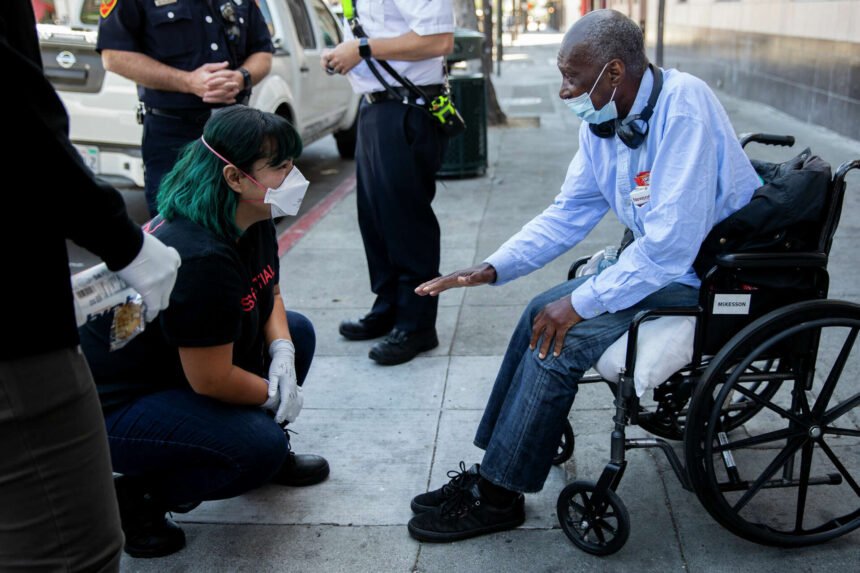In recent years, the importance of mental health awareness and effective crisis response has become increasingly central in law enforcement and community support services. One of the most impactful initiatives in this area is the Crisis Intervention Team (CIT) model. This approach significantly improves how police officers handle situations involving individuals experiencing mental health crises, leading to better outcomes for all parties involved.
Understanding Crisis Intervention Teams
A Crisis Intervention Team (CIT) is a specialized, community-oriented program that trains police officers and first responders to intervene effectively and compassionately when engaging individuals in mental health emergencies. These teams are designed to divert people from the traditional criminal justice system to appropriate mental health services, reducing the risk of harm and unnecessary incarceration.
The concept originated in Memphis, Tennessee, in 1988, with the goal of addressing the growing challenges faced by law enforcement officers when responding to mental health crises. Since then, crisis intervention teams have been adopted across the United States and internationally, evolving into a respected standard for crisis response.
How Crisis Intervention Teams Work
Crisis intervention teams combine specialized training with a coordinated community response system. Officers in these teams receive extensive education on mental illnesses, de-escalation techniques, and available community resources.
When a crisis call involves someone experiencing mental health distress, CIT-trained officers are dispatched to the scene. Their focus is on de-escalating the situation through communication skills, empathy, and understanding, rather than traditional law enforcement tactics that might escalate tensions.
CIT officers also work closely with mental health providers, social workers, and emergency services. This collaboration facilitates quick referrals to mental health treatment centers or crisis stabilization units, allowing individuals to receive the care they need rather than entering the criminal justice system.
Crisis Intervention Team Training: The Foundation of Success
The effectiveness of any crisis intervention team depends heavily on the quality of its training program. CIT training typically consists of 40 hours or more of classroom instruction combined with role-playing scenarios and community tours.
Key components of crisis intervention team training include:
-
Education on mental illnesses such as schizophrenia, bipolar disorder, and depression.
-
De-escalation tactics and crisis communication skills.
-
Legal considerations related to mental health interventions.
-
Insight into the effects of substance abuse on mental health.
-
Introduction to local mental health resources and service providers.
This training equips law enforcement officers to recognize and respond to symptoms of mental illness and to make decisions that prioritize safety and dignity for everyone involved.
The Advantages of Crisis Intervention Teams
The implementation of crisis intervention teams has shown numerous benefits, both for communities and law enforcement agencies:
-
Reduced use of force incidents with individuals in crisis.
-
Lower rates of arrests and incarcerations for people with mental illness.
-
Improved connections between law enforcement and mental health services.
-
Enhanced safety for officers and individuals during crisis calls.
-
Overall improvement in community trust and police legitimacy.
These advantages highlight why crisis intervention teams have become a crucial element of mental health-responsive policing.
Crisis Intervention Teams Across the Globe
While the CIT model originated in the United States, it has inspired similar programs internationally. Crisis intervention team international efforts support knowledge sharing, training improvement, and advocacy for better mental health crisis response worldwide.
Organizations like the International Association of Chiefs of Police (IACP) have been instrumental in promoting CIT programs beyond U.S. borders. These international collaborations ensure that best practices in crisis intervention continue evolving to meet diverse community needs.
The Role of Crisis Intervention Team CIT Programs
The acronym “CIT” is often used interchangeably with crisis intervention team, but it specifically represents the formal training program many departments implement. CIT programs formalize the steps to recruit officers, deliver intensive training, and integrate community resources effectively.
CIT officers become mental health first responders within police forces, dedicated to leading crisis calls with compassion and expertise. This specialization helps make a systemic difference in how communities handle mental health emergencies.
Read More: Inside the Crisis Intervention Team Model: Bridging Law Enforcement and Mental Health
Looking Ahead: The Future of Crisis Intervention Teams
The success and proliferation of crisis intervention teams show a positive trend toward more humane and effective mental health crisis management. With ongoing advocacy and funding, it is expected that CIT programs will continue expanding and adapting to new challenges, including:
-
Integration with mobile crisis units.
-
Use of technology to support remote mental health interventions.
-
Increased focus on cultural competency and inclusivity.
-
Partnership with peer support specialists and family advocates.
As awareness around mental health grows, crisis intervention teams will remain at the forefront of innovative solutions ensuring safety, respect, and better health outcomes for vulnerable populations.








